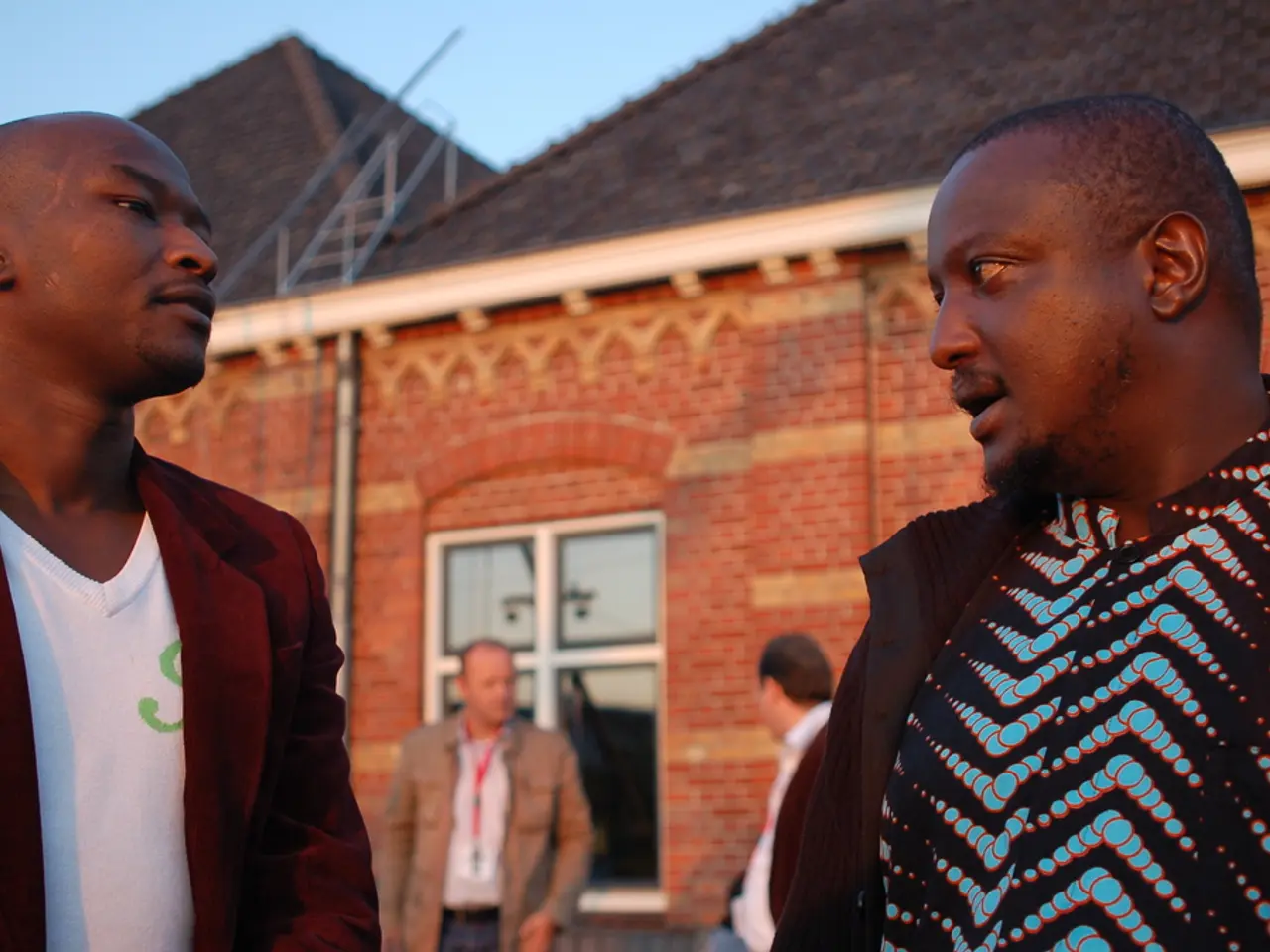Strategies for Securing Initial Capital of $100,000 in Africa: Insights from Entrepreneurs
In the dynamic world of African entrepreneurship, securing funding is a crucial step for startups to thrive. While venture capital has been a popular avenue, it's essential to explore alternative funding methods that cater to the unique challenges and opportunities in the African market.
In 2022, African startups raised a staggering $3.3 billion, with fintech alone attracting $1.4 billion. This growth is driven by increased global interest, the rise of pan-African venture capital funds, and growing investments from the diaspora. However, venture capital funding in Africa's largest economies accounts for less than 0.3% of GDP, compared to 1% to 2.5% in countries like the US, UK, China, and Israel.
To overcome this hurdle, African startups can turn to revenue-based finance (RBF). This innovative funding method allows founders to repay investors as a fixed percentage of monthly revenue, preserving ownership and aligning returns with actual business performance. Strategic angel investors, who offer capital, expertise, mentorship, and networks, can also be a valuable resource. They often have more tolerance for experimentation compared to venture capitalists.
Crowdfunding is another option, enabling startups to raise funds directly from their communities, which can help build a loyal customer base and early advocates. International investors tend to focus on scalability, profitability, and solutions with broader market potential, making it crucial to tailor pitches to align with their priorities.
Accelerator programs, such as the MTN Cloud Accelerator Program, offer grants and growth support. Challenges like the MEST Africa Challenge target technology and fintech startups, providing opportunities to scale and access broader innovation networks. Building credibility and early traction often starts with creating a minimum viable product (MVP) and validating your idea.
Women-led startups face unique challenges, securing only one in every ten investment dollars and contributing to a $42 billion funding gap. To secure funding, they can leverage programs specifically designed to support female entrepreneurs, build strong networks within investor communities, and showcase the distinct strengths of their business.
Regulatory issues and cultural nuances can add another layer of complexity for African startups. Understanding these factors can give you an edge when pitching to both local and international investors. Platforms like Storydoc, Canva Pro, and Visme offer user-friendly templates at affordable prices for creating pitch decks.
One successful example is ALAL Card, a pre-revenue fintech startup from Senegal. After receiving investment from Baobab Network in August 2023, the company made strategic pivots and became a rising fintech star by January 2025.
In conclusion, while venture capital is a significant source of funding, African startups have various alternatives to explore. These include revenue-based finance, strategic angel investment, crowdfunding, accelerator programs, grants, international partnerships, and more. Staying informed about market trends and understanding local regulations, customer behavior, and cultural nuances can help navigate this diverse funding landscape successfully.
- To expand their reach and secure additional funding, African startups should consider cross-border payments and partnerships with international investors who focus on scalability, profitability, and innovative solutions.
- In addition to venture capital, revenue-based finance (RBF) can be a valuable option for African startups, as it allows founders to repay investors based on a fixed percentage of monthly revenue, preserving ownership and aligning returns with actual business performance.
- Despite the challenges faced by women-led startups, such as a significant funding gap, these entrepreneurs can secure funding by leveraging programs specifically designed to support female entrepreneurs, building strong networks within the investor community, and showcasing the unique strengths of their businesses.




